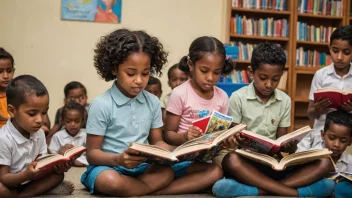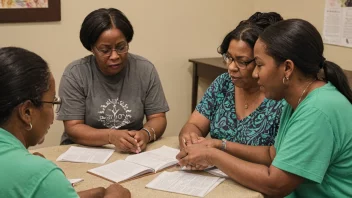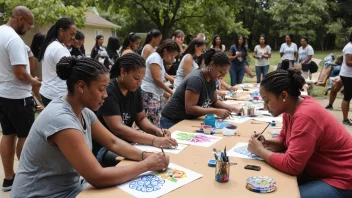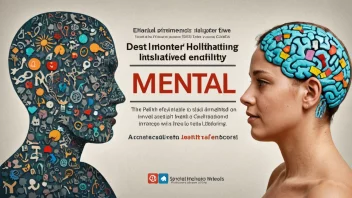In an age where technology increasingly shapes our lives, the power of storytelling has evolved into a formidable tool for humanitarian aid and social justice initiatives. Digital storytelling combines traditional storytelling techniques with digital media, enabling individuals and organizations to share impactful narratives that resonate with diverse audiences. This innovative approach not only highlights urgent humanitarian issues but also inspires action and fosters community engagement. As we delve into the multifaceted world of digital storytelling, we will explore its significance in amplifying humanitarian messages, showcase successful initiatives, and provide guidance on how individuals can harness this medium to effect positive change.
The Essence of Digital Storytelling
Digital storytelling merges the art of storytelling with modern technology, allowing individuals to create narratives through videos, podcasts, blogs, and social media. This form of storytelling is particularly compelling because it can convey complex issues in relatable and engaging formats. By utilizing visuals, sound, and personal experiences, digital storytellers can evoke empathy and encourage audiences to connect with the subjects at hand. In the context of humanitarian aid, these stories can shine a light on critical issues such as poverty, health crises, and social injustices, making them more accessible and relatable to a global audience.
Amplifying Humanitarian Messages through Digital Platforms
The reach of digital storytelling is vast, thanks to platforms like YouTube, Instagram, Twitter, and TikTok. These platforms allow stories to transcend geographical boundaries, enabling them to reach and resonate with millions of people. For instance, organizations such as Human Rights Watch and Médecins Sans Frontières have effectively used digital storytelling to share real-life accounts of individuals affected by conflict and crisis. These narratives not only raise awareness but also mobilize support for their causes.
Case Studies of Impactful Digital Storytelling Initiatives
Several initiatives exemplify the transformative potential of digital storytelling in humanitarian contexts:
- The UN’s #ShareHumanity Campaign: This initiative encourages individuals to share their stories of kindness and compassion through social media. By amplifying personal narratives, the campaign highlights the universal values of empathy and solidarity, fostering a sense of global community.
- StoryCorps: An organization dedicated to recording and preserving personal stories, StoryCorps has partnered with various humanitarian organizations to create narratives that highlight social injustices and the experiences of marginalized communities. Their digital archive serves as a powerful resource for advocacy and education.
- Humans of New York: Originally a photography project, Humans of New York has evolved into a platform for storytelling that features the voices of individuals from diverse backgrounds. By sharing personal stories of struggle and resilience, the project raises awareness about social issues while fostering empathy among its audience.
How to Get Involved in Digital Storytelling
For individuals interested in engaging with digital storytelling to promote humanitarian messages, there are several avenues to explore:
- Start Your Own Project: Consider creating your own digital storytelling project that focuses on a cause you are passionate about. This could involve interviewing individuals affected by a particular issue, documenting community initiatives, or sharing your own experiences.
- Collaborate with Organizations: Many non-profits and humanitarian organizations are eager to partner with individuals who can help amplify their messages. Reach out to local or global organizations to see how you can contribute your storytelling skills.
- Utilize Social Media: Social media platforms are excellent for sharing stories and engaging with a wider audience. Use your personal accounts to share impactful narratives and encourage discussions around humanitarian issues.
- Attend Workshops and Training: Look for workshops or online courses focused on digital storytelling. These can provide valuable skills and techniques to enhance your storytelling abilities.
The Role of Empathy in Digital Storytelling
At the heart of effective digital storytelling is empathy. By sharing stories that evoke emotional responses, storytellers can foster a deeper understanding of humanitarian issues. This empathy is crucial in motivating individuals to take action, whether through volunteering, advocating for policy changes, or simply spreading awareness. When audiences can relate to the experiences of others, they are more likely to engage with the issues at hand and contribute to meaningful change.
Challenges and Considerations
While digital storytelling holds immense potential, there are also challenges to consider. Issues such as digital divide, where access to technology is limited for some populations, can hinder the effectiveness of storytelling efforts. Additionally, ethical considerations must be taken into account when sharing personal stories, ensuring that individuals are represented authentically and with their consent. It is crucial to approach storytelling with sensitivity and respect, particularly when dealing with vulnerable communities.
Conclusion
Digital storytelling is a powerful medium that can amplify humanitarian messages, foster empathy, and inspire action. By harnessing the tools of modern technology, individuals and organizations can share compelling narratives that resonate with audiences around the world. As we navigate pressing global issues, the collective efforts of passionate storytellers can play a pivotal role in promoting social justice, advocating for the marginalized, and driving positive change. Whether through creating personal projects, collaborating with organizations, or utilizing social media, each of us has the potential to make a difference through the art of storytelling. In a world that often feels disconnected, let us embrace the power of our shared humanity and use our voices to advocate for those in need.






